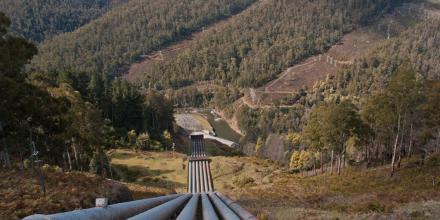The economics of hydropower: integrating downstream externalities and multiple water uses into dam operator decision-making

Event details
PhD Seminar (Econ)
Date & time
Venue
Speaker
Contacts
In this thesis proposal review, Paul Wyrwoll will present research that applies economic theory and modelling to the problem of maximising social benefits from hydropower dams and reservoirs. Dams disrupt natural river flow regimes and can impose large negative costs on downstream ecosystems and economic sectors, including fisheries, agriculture and industry. Water stored in reservoirs can be directed towards beneficial uses aside from energy, such as irrigation and water supply. Trade-offs exist therefore between dam operators’ hydropower revenue and the economic returns from non-energy water uses accruing to farmers, households and other economic agents. These trade-offs are inherently dynamic due to climate variability: rainfall and temperature fluctuations alter the value of storing water for future energy production and the value of delivering water to the environment and other non-energy uses, particularly during drought.
The proposed research project will construct a hydro-economic model of the dynamic trade-offs between electricity generation and non-energy water uses. Dynamic programming will be used to analyse the efficiency of different policy instruments for integrating the externalities of hydropower production and the value of multiple reservoir uses into private operating decisions, and, hence, optimise the social return from hydropower dams. Quantitative applications of the model to three hydropower dams will demonstrate the utility of the model as a decision-support tool for dam operators, governments, and civil society. The first application to the Poatina powerstation on Tasmania’s Great Lake will be discussed in detail.
Updated: 28 July 2024/Responsible Officer: Crawford Engagement/Page Contact: CAP Web Team






